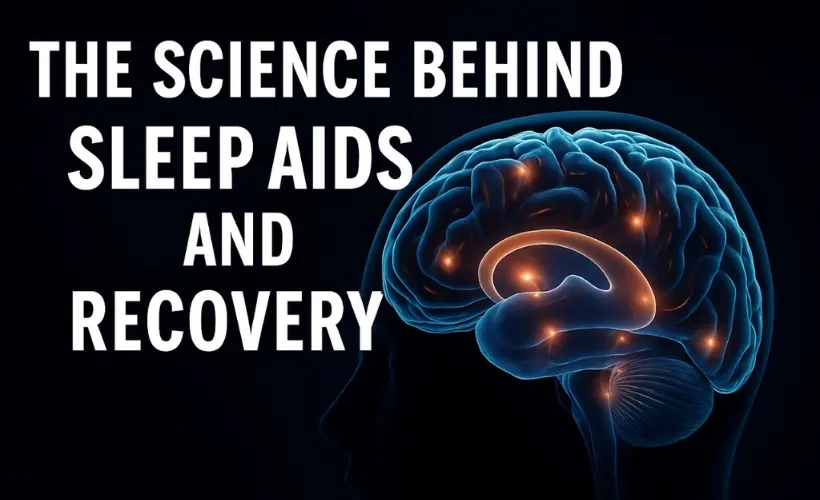The Science Behind Sleep Aids and Recovery

Getting enough quality sleep is essential for recovery, whether from daily stress, workouts, or illness. Today, many people turn to sleep aids to improve rest. But what does science actually say about them? Let’s break it down.
1. How Sleep Works
- Sleep Pressure (Homeostatic Sleep Drive): The longer you stay awake, the stronger your body’s need for sleep becomes.
- Circadian Rhythm: Your internal body clock, controlled by the brain’s hypothalamus, tells you when to feel sleepy or alert.
2. Popular Sleep Supplements
- Regulate the sleep-wake cycle and help with jet lag or shift work.
- Don’t dramatically increase sleep time; studies show they only help you fall asleep about 6 minutes faster on average.
- Quality varies; tests have found some products contain 40 to 130 times the amount listed on the label.
3. How Sleep Works
- Pumpkin seeds and dates are rich in magnesium for natural relaxation.
- Chia seeds with warm milk provide tryptophan, magnesium, and calcium—nutrients that support sleep, digestion, and even skin health.
- Routine matters; a consistent bedtime, low evening screen time, and stress reduction techniques like meditation can make a big difference.
4. How Sleep Works
Some brands now offer melatonin-free formulas to avoid hormone disruption. An example is AGZ by AG1, which is a blend of Magnesium L-threonate, Ashwagandha, Saffron, L-theanine, and Valerian root. It has gained major attention, with a waitlist of over 28,000 people.
Final Thoughts
Sleep aids, whether melatonin, magnesium, or newer blends, can help improve sleep and speed up recovery. But they work best alongside healthy habits like a regular sleep schedule, stress management, and a calming nighttime routine. Choose high-quality supplements and consult a professional to find what’s safe and effective for you.
